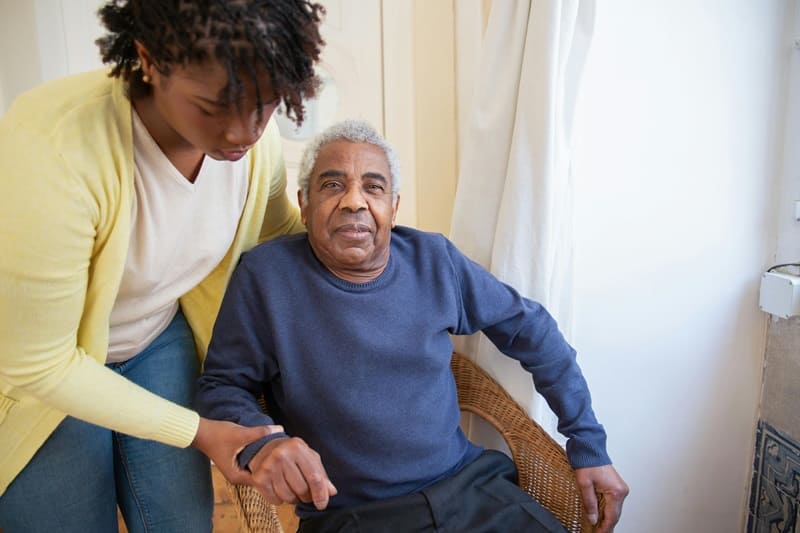Understanding the cost of respite care in Australia can be complicated. But let’s show you exactly each factor, whether it’s in an aged care home, in your own home, or the community. Respite care in Australia is partially subsidised by the government and funds up to 63 days of respite care per eligible person in every financial year, with eligibility typically for Australians aged 65 years and above (or those who are Aboriginal or Torres Strait Islanders can receive it from 50 years and above) who require assistance with daily living activities. But what are the costs we can expect to pay?
The Costs of Residential Respite Care
Residential respite care is a type of support service that allows families and caregivers a temporary break while looking after an elderly individual. Respite care will take place in a care home with the duration varying on a variety of needs such as the caregiver themselves, the availability of services, and the specific needs of the person receiving the care.
ADVERTISEMENT

The average respite stay in Australia is around three weeks with a residential respite stay lasting anywhere between two and six weeks. There are different types of fees for residential respite:
Basic Daily Care Fee
This is something that everybody pays and the fee will help with day-to-day services such as:
- Cleaning.
- Meals.
- Laundry.
- 24/7 nursing care.
- In-house activities.
- Group physiotherapy.
The basic daily care fee is calculated at 85% of the single-person rate of the basic age pension, which is $60.86 per day (the government updates this fee on 20 March and 20 September each year in line with increases to the age pension), and claiming this will require an assessment coordinated by My Aged Care to determine eligibility and receive a respite classification based on their needs which is a two-part process the begins with an eligibility check and in-person assessment at their home with two different types of assessments:
- A Home Support Assessment with a Regional Assessment Service (RAS), which is for individuals who may need low-level support to stay independent in their home. This is provided through the Commonwealth Home Support Programme.
- A Comprehensive Assessment with an Aged Care Assessment Team (ACAT), which is for individuals who have care needs greater than what the Commonwealth Home Support program can support and can assess the eligibility for a variety of options including short-term care, aged care homes and Home Care packages.
Additional Services Fee
This is an extra fee which typically refers to costs associated with non-clinical services. These may include:
ADVERTISEMENT
- Different meal choices or special dietary requirements.
- Access to the internet, pay TV, or newspapers.
- Allied health options, for example, personal physiotherapy visits.
- Personal services, such as beauty therapy or hairdressing.
- Special activities like outings.
- Enhanced room features, for example, extra furnishings or private rooms.
Therefore the total costs can vary however if you’re calculating the basic age pension which is $60.86 per day, multiplying this by seven days can give you a weekly cost of approximately $426.02, but this does not include the additional extras which can depend on the costs provided by the respite provider.

The Costs of In-Home Respite Care and Community Respite Care
Respite care in the home allows carers temporary relief from their caregiving duties while also ensuring the person who requires the care can stay in the comfort of their own home. Services can vary but typically include:
- Personal care like bathing, dressing, eating etc.
- Household chores such as meal preparation, shopping, laundry, and cleaning.
- Companionship and other emotional support.
- Medication management to ensure it is taken at the right times of day.
- Mobility assistance, such as getting in and out of the bed or bath and moving around the home.
- Nursing care, which may be necessary depending on the individual and can include medical care like injections and wound care.
There is also community respite care with the difference being that it may involve an overnight stay in a setting such as a cottage or a few hours up to a day in a setting like a day centre, respite care centre, or an aged care centre where activities are provided. The fees will depend on the home itself and the specific services required. There can be a number of different services such as:
- Live-in care options.
- Respite care.
- Call out fees.
All these can add up so it’s important to look around for the provider that suits both the needs of the person receiving care and the budget but costs for both of these respite supports can be subsidised by the Commonwealth Home Support Program.
Information About the Commonwealth Home Support Program
This program provides entry-level support for older individuals to help them live independently and safely at home. For more complex care needs, it’s essential to apply for a home care package. Services can help in a variety of ways such as housework, personal care, housing support, and respite care.
To be eligible individuals must meet certain criteria which is determined through an Aged Care assessment. Individuals eligible are expected to contribute to the cost of their care if they can afford to do so which will vary depending on the type of support. Simple services like house cleaning and meals may cost a few dollars, but more complex services are more expensive.
ADVERTISEMENT

What to Consider Before Paying for Respite Care
To ensure that you or your loved one are getting the right level of care here are a few things to bear in mind:
- Get an ACAT assessment as this can result in major discounts on respite care.
- Use respite days to see if the environment is suitable.
- Book respite services in advance and ensure the provider has a bookable respite room.
- Pay for the residential respite with a home care package (if applicable).
Understanding the overall costs of respite care in Australia can be complex which is why it’s important to understand that whether you are a carer who needs respite or a person looking for support, ensuring that you have an understanding of the overall costs means you can operate within a budget that meets everyone’s needs.
ADVERTISEMENT












